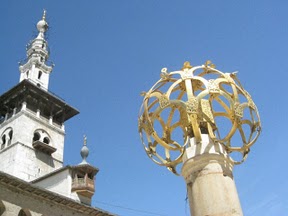Earlier today in Beirut as I made my way to Sassine for brunch with my 15-month old we passed yet another high-rise construction site called Embassy II. The floor plans show the usual cluster of vast living rooms, en suite bathrooms and tiny maid’s rooms. They’re accompanied by the tag-line “Your passport to luxury city living.”
An hour after leaving Sassine, I was back home, thinking about Lebanese business concepts which have filled a real gap in the market, like Beirut.com and Zawarib. You can’t think about business or any kind of investment in Beirut without pondering the instability of investments in a country which one pundit or another invariably puts on the brink of war. Ironic then that my thoughts are interrupted by a huge blast followed by the wail of ambulances. Soon the land line, the mobiles, and Skype were alive with friends and family checking for our vital signs. A couple of hours later, Naharnet, the source which seems to get news out the fastest, put the toll at 8 dead and 78 wounded in a car bomb just off Sassine. Then their website got too overloaded to load. I’m glad I abandoned the idea of staying at Sassine to shop after kneife because my Beirut baby was so sleepy.
Yesterday I was sent this article in The Spectator on why one Lebanese has had enough of the frailty of life in Beirut. Unlike him, I haven’t lived through three wars. I was only on holiday here in May 2008 when gun fights sprang up like leaks in a plastic bag and Hizbollah took control of West Beirut. I don’t get war jitters like some who have lived through it. In fact that was my only trip here before deciding to move here and it didn’t put me off in the slightest. I didn’t even learn the Arabic for bomb until today – a good sign to be sure. But I’m no longer seized by the desire to head straight back up to Sassine to check the situation out. I have Beirut baby to think about. Frankly, worrying about her tripping as she toddles about on her little legs so soon after her first steps is as much as I want to handle.
The news now is that the head of the Intelligence Bureau of the Internal Security Forces was the target of the car bomb. The BBC says its the deadliest attack since May 2008. Still, on a purely selfish level it’s almost a relief to know that it was, as always in Lebanon, an attack with a specific target, a typical assassination. Doesn’t that make it less likely for innocent bystanders and their babies to get caught up in the violence than in countries where terrorism is more random? It’s not a relief for Lebanon though.
Some may be willing to put a million dollars into the Embassy II development, and maybe it will prove to be their passport to luxurious city living. But it might just as well give them a better view than they ever wanted over a brand new conflict on their doorstep. As Michael Karam points out in his very personal article, the third world affords certain luxuries which are hard to come by in the West, such as live-in home help at laughably low rates. But I think a lot of dual-citizen Lebanese out there are wondering whether they should be using their back-up nationality, their non-Lebanese passport, to get themselves a normal life elsewhere, instead of the sometimes luxurious but unstable life they lead in Lebanon. Others may be gritting their teeth as they knuckle down to a difficult period from which they have no escape.
